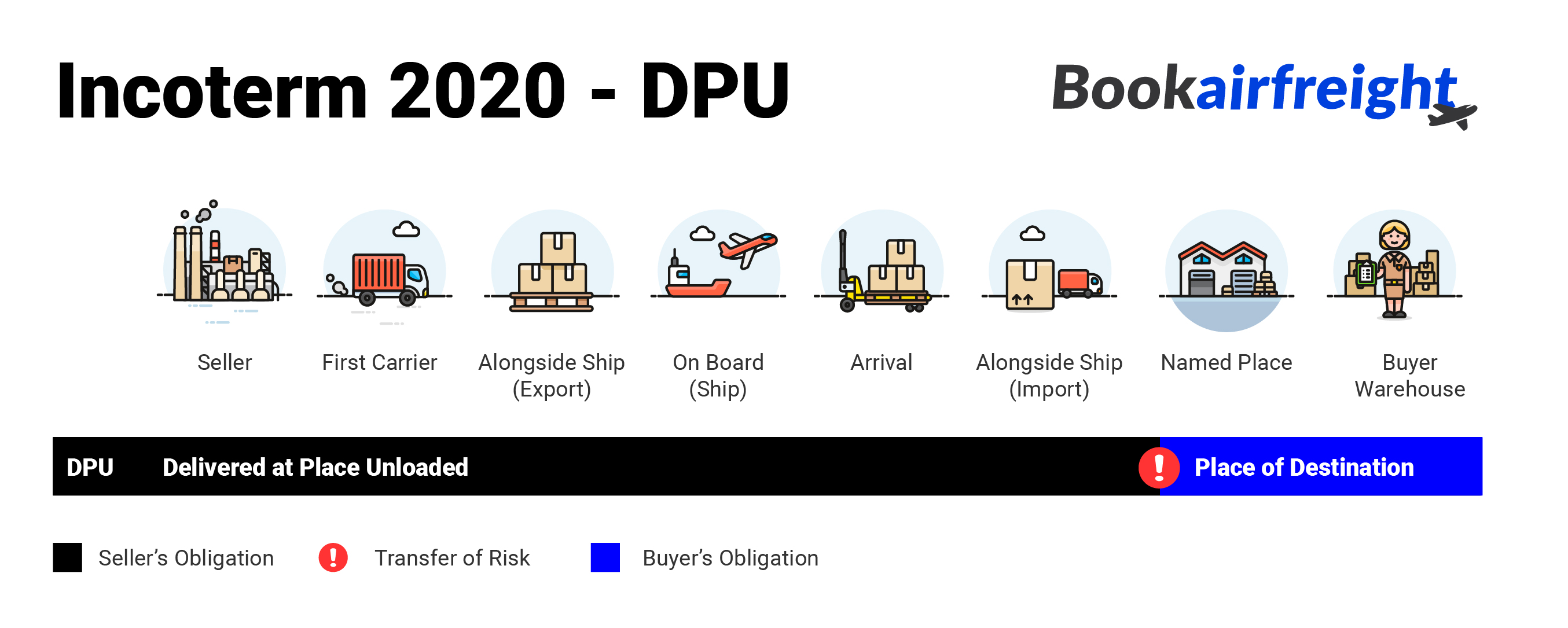What is Delivered at Place Unloaded (DPU)?
DPU is one of the 11 International Commercial Terms (Incoterms) used in trade, where the seller is responsible for arranging transportation and unloading the goods at an agreed place of destination.
DPU was previously known as DAT (Delivered at Terminal). The change, from delivery “at terminal” to delivery “at place”, came into effect in 2020 to allow for a more general usage of the term.
🚨 Point of Risk Transfer!
After the goods have been unloaded by the seller at the buyer’s destination, the risk transfers to the buyer.

When is it best to choose DPU?
DPU is more suitable for LCL or consolidated shipments with multiple receivers, because the seller has control over unloading the goods, separating the shipments, and arranging for delivery.
Also, if the goods require additional or special handling (e.g. equipment), and the seller agrees to these requirements, DPU should be chosen.
A quick example:
Cost allocation. Who pays for what under DPU?

How is DPU different from DAP ?
The key difference is in the unloading of goods at the specified destination.
With DPU (Delivered at Place Unloaded), the seller unloads.
With DAP (Delivered at Place), the buyer unloads.
Rajitha Reniguntla is a supply chain enthusiast from Hong Kong. With a curious mind, she's an avid learner carrying a knack for exploring and breaking down complex ideas. She loves to learn about new things and always aims to enhance the customer experience. Outside of work, she enjoys cycling, doodling and listening to podcasts!




































.JPG)
































